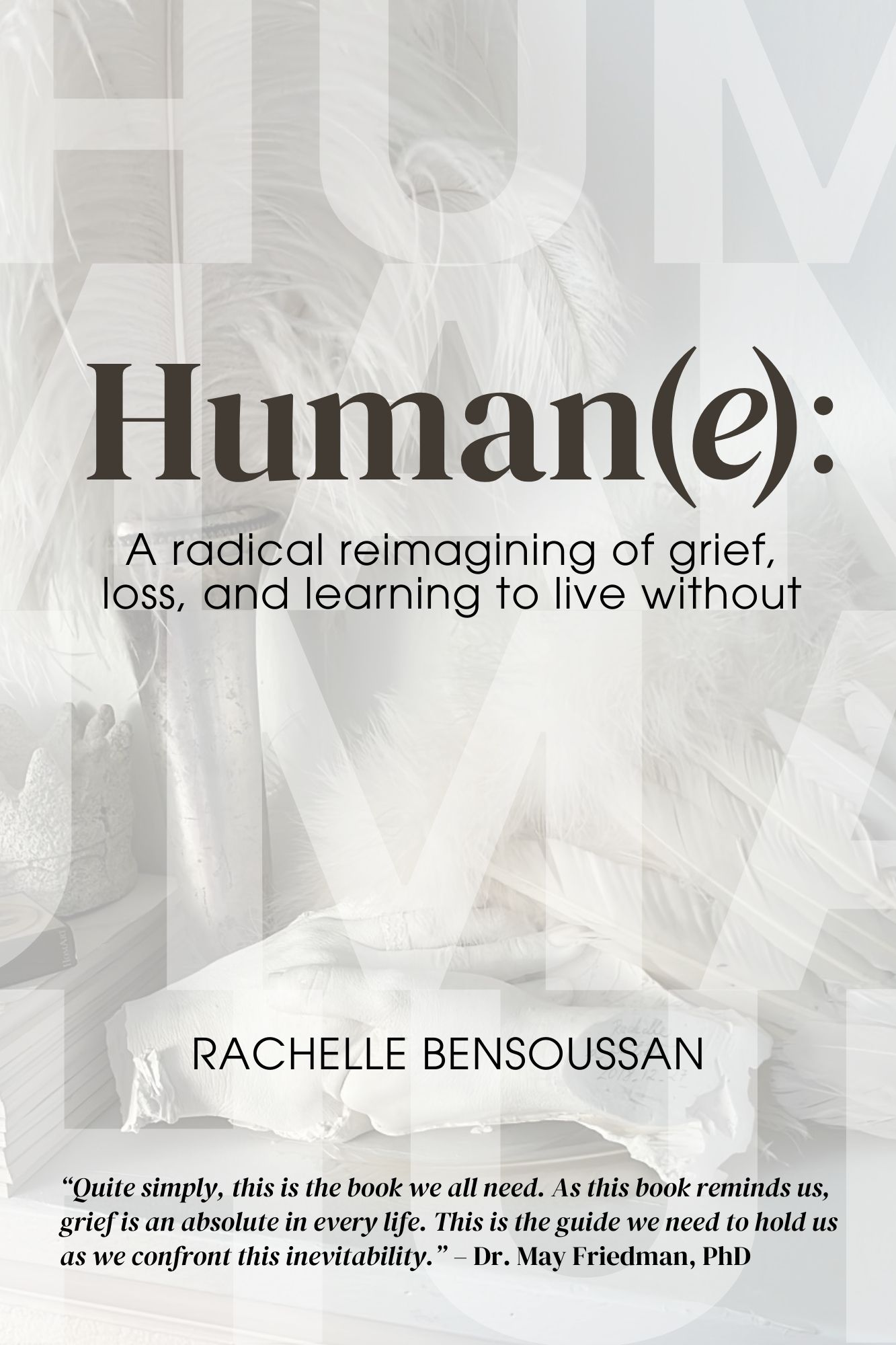
Price: $39.95
Page Count: 250
Publication Date: August 2024
ISBN: 978-1-77258-504-9
“Quite simply, this is the book we all need. Harnessing the power of story, Bensoussan simultaneously naturalizes grief as a necessary part of the work of living and also provides real solace and guidance for those navigating this terrain. As this book reminds us, grief is an absolute in every life. This is the guide we need to hold us as we confront this inevitability.”
– May Friedman, Metropolitan University
Introduction: Rachelle Bensoussan M.A., CT, OAMHP
Before We Begin: A Disclaimer on the use of the words We and Culture.
Chapter 1: How the heck did we get here? A social exploration of our current grief landscape.
This chapter includes the following:
1. How grief is pathologized and why it is i.e. who does it harm and who might it benefit?
2. How larger systems (i.e. capitalism, white supremacy, ableism etc.) impact our grief experiences
3. Why the stories we are told matter, and how they influence and predict our response to grief and loss.
4. The myth of Elizabeth Kubler Ross and her 5-stage model of grief.
5. Participation & Consent: why grief requires neither
6. Definitions of Grief, Loss & Mourning
7. The difference between tangible vs. intangible losses
Chapter 2: Grief is NOT a feeling. A comprehensive exploration of what grief is and is not.
This chapter includes the following:
1. Why grief is not a feeling and how this dominant myth continues to harm
2. The way grief impacts us:
a. physically
b. emotionally
c. cognitively
d. existentially
e. socially
f. sexually
Chapter 3: When did being human become pathological? A human exploration into grief as a biological and evolutionary imperative.
This chapter includes the following:
1. Grief as a biological imperative. An exploration of how most of what keeps humans alive as a species occurs involuntarily (i.e. without our consent and without our participation) i.e. breathing, digestion, fetal development, childbirth, attachment, and grief.
2. Grief as an evolutionary solution to the inevitable severing of attachments we as humans endure throughout our lives.
3. Grief serving a similar function in the body to elimination. As part of digestion we need to eliminate to make room for more nutrients, and as part of our need for attachment we need to digest and metabolize our losses in order to make room for more connection.
4. What aids and inhibits the metabolization of grief?
5. An exploration into storytelling, community, movement and sound.
Chapter 4: Living with loss: might humans be able to metabolize grief without the interference and/or intervention from paid professionals?
This chapter includes the following:
1. Diversity of (Involuntary) Coping Styles:
a. emotional
b. physical
c. cognitive
2. Dominant Styles of Grief:
a. Instrumental Grievers
b. Intuitive Grievers
3. What modern day grief theory actually suggests about grief.
a. The myth of closure and moving on
4. The Western-Colonial bias towards the emotional expression of grief
Chapter 5: Grief as chronological age. An exploration of what childhood development can teach us about living with loss and supporting those who are grieving.
This chapter includes the following:
1. The shattering of the assumptive world and what that means for the development of identity and self.
2. How we can use the tasks of childhood development as a map for our foray into grief
3. What do we know and expect from:
a. infants
b. toddlers
c. preschoolers
4. How might this help us to navigate our own experiences of grief and loss? What can they teach us about supporting ourselves and each other? How might this help us to shift and manage our expectations of self and other while grieving?
Chapter 6: Why self-care won't save us. A critique of the self-care movement and how it further impedes our metabolization of grief.
This chapter includes the following:
• How the term self-care has been coopted and weaponized against the bereaved, and those who support them
• The solution for systemic harm can never be placed on the individual. Accountability for repair must always be placed back onto the system that caused the harm.
• If grief and loss are not optional, how do we stay afloat?
• A movement towards community care and mutual aid.
Chapter 7: Silenced: An exploration of mourning and disenfranchised grief
This chapter includes the following:
• Definition of disenfranchised grief
• An exploration of disenfranchised grief including examples, impacts and outcomes
• An exploration of how loss responses are layered and therefore influenced by our social location.
• Definition of mourning: our grief gone public
• An exploration of what is required to be able to mourn including:
• Access
• Time
• Resources
• Capacity
• Cultural Appropriation of grief rites and rituals, and the harm that ensues for marginalized communities.
• Personal short essays from guest contributors to highlight the experience of disenfranchised grief from the lived experiences of transitioning, late-stage medical termination/abortion, Indigeneity and disability.
Epilogue
Rachelle Bensoussan holds a master’s degree in Thanatology and has spent the last fifteen years building community-based bereavement programs across Southern Ontario. She is a former faculty member at both McMaster University’s Michael G. DeGroote School of Medicine and King’s University College. Rachelle is a two-time nominee for the Association of Death Education and Counselling’s Clinical Educator Award and Community Educator Award. Rachelle is a Queer-identified woman of North-African & Middle Eastern descent.


